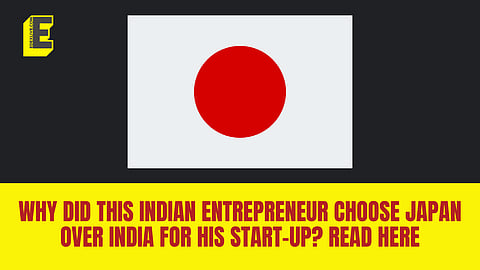

Prashant Sharma, an Indian neuroscience research student, moved to Tokyo in 2023 to pursue a PhD at the University of Tokyo. During his studies, he developed an innovative language learning method grounded in neuroscience principles.
Instead of returning to India, Sharma opted to launch his start-up, Immersify, in Japan, with the help of the country's Startup Visa programme, reported Hindustan Times.
Why did he choose Japan?
Sharma’s decision to build his start-up in Japan stemmed from both personal and professional considerations. He highlighted Japan’s organised, clean, and peaceful environment, zero air pollution, a high-trust society, and smooth functioning, as key factors.
Via a post on social media platform, Reddit, on April 19, he shared his frustration with the bureaucratic challenges faced by Indian start-up founders.
Sharma emphasised that Japan’s Startup Visa, which requires only an idea, and no immediate capital or physical office, was ideal for a solo founder.
He also appreciated Japan’s supportive start-up ecosystem, with active government and venture capital (VC) investment, making it a viable alternative to India’s challenging entrepreneurial landscape.
What is the Japan Startup Visa programme?
The Japan Startup Visa programme, designed to attract foreign entrepreneurs. It allows founders to launch businesses with less initial requirements, such as no need for immediate capital investment, hiring, or a physical office. Sharma described the application process as rigorous but rewarding, enabling him to establish his edtech startup in Tokyo.
As of September 2024, over 716 individuals have obtained this visa, with 359 successfully launching businesses, according to reports.
Reactions
Sharma’s Reddit post, titled “Why I decided to build my Startup in Japan instead of India (Japan Startup Visa),” sparked discussions on social media,
One user questioned whether Sharma spoke Japanese, and assumed his start-up was digital, citing Japan’s language barrier and labour shortages as potential hurdles. Sharma clarified that his digital business faced costs comparable to those in Tier-1 Indian cities, but offered a better quality of life with no traffic, pollution, or chaos.
Another user argued that capital requirements in Japan would be higher than in India. Sharma countered that operating costs were low, and Japan’s government provided abundant funding opportunities.
A user who visited Japan praised Sharma’s bold move, offering encouragement and best wishes for his venture.
Cost of living and other expenses
Sharma addressed misconceptions about Japan’s high costs, stating that his monthly expenses in Tokyo ranged from INR 70,000-80,000, with the potential to live comfortably on INR 40,000-50,000. He emphasised that Japan is among the cheapest developed countries to live in, offering a high return on investment (ROI).
Additionally, he noted that while traditional Japanese companies may have demanding work cultures, start-ups and multinational corporations (MNCs) in Japan are more relaxed, fostering a conducive environment for innovation.
